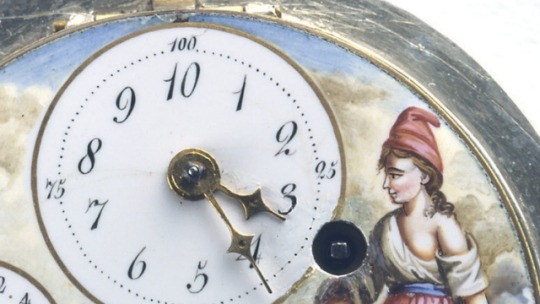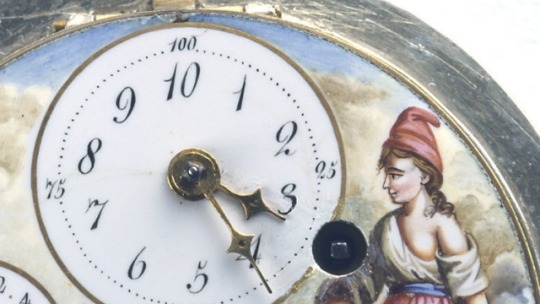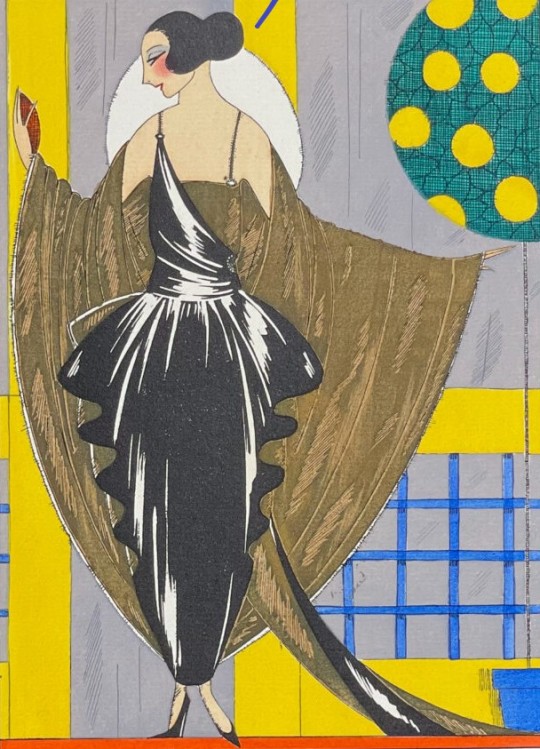#Romme
Explore tagged Tumblr posts
Text


flag id: a flag with 5 stripes, with the third being about half the size of the rest. they are dark cool green, very dark warm purple, near-black, very dark blue, and dark sky blue. end id.
banner id: a 1600x200 teal banner with the words ‘please read my dni before interacting. those on my / dni may still use my terms, so do not recoin them.’ in large white text in the center. the text takes up two lines, split at the slash. end id.
romme: being both a tomme and a rogue; one who is both an androgynous bi man and a bi woman who rejects societal expectations of womanhood (through masculinity, androgyny, etc.)
[pt: romme: being both a tomme and a rogue; one who is both an androgynous bi man and a bi woman who rejects societal expectations of womanhood (through masculinity, androgyny, etc.). end pt]
tomme + rogue term for anon!
tags: @radiomogai, @liom-archive, @macchiane, @genderstarbucks
tags cont: @p-rtyboy, @dragonpride17
dni link
#romme#tomme rogue#rogue tomme#tomme#rogue#my flags#my terms#new flag#new term#mogai flag#mogai term#mogai
12 notes
·
View notes
Photo

7 avril 1795 : abolition du système de temps décimal imposé en 1793 ➽ http://bit.ly/Abolition-Temps-Decimal Le temps décimal avait été adopté sur l’instigation de Charles-Gilbert Romme, auteur d’une charge violente contre l’ère vulgaire en dénonçant « un monument de servitude, d’ignorance, auquel les peuples ont successivement ajouté une empreinte de leurs avilissements »
#CeJourLà#7Avril#Temps#Décimal#Système#Abolition#Convention#Décret#Loi#Calendrier#Journée#Ère#République#Vulgaire#Chrétienne#Romme#Révolutionnaire#Année#histoire
7 notes
·
View notes
Text

Martha Romme, Nivôse (Snovy), "de la neige lesflocans. de la saison son les papillons" (snow flakes. of the season its the butterflies). 1919.
Nivôse (French pronunciation: [nivoz]; also Nivose) was the fourth month in the French Republican Calendar. The month was named after the Latin word nivosus, which means snowy. Nivôse was the first month of the winter quarter (mois d'hiver). It started between 21 and 23 December.
#martha romme#illustration#1919#art deco#red#butterflies#romme#Martha Romme#snow#winter#snovy#1919 illustrations#snow flakes#coat#winter coat#red coat#winter fashion#my edits#winter season#season#season fashion#red boots#christmas#christmas fashion#christmas greetings#red shoes
91 notes
·
View notes
Text

According to certain sources while he was imprisoned with the other Hébertists, Cordeliers he would have said the following words (repeated in the movie Saint Just et la Force des Choses) "...you will be condemned. When you should have acted, you talked. Know how to die. For my part, I swear that you shall not see me flinch. Strive to do the same". If it was a clumsy way of helping them prepare to die, it succeeded because they practically all died with dignity (apart from Hebert, this abominable false friend of the people). Another of his quotes which was attributed to him "Liberty undone!...because a few paltry fellows are about to perish! Liberty is immortal. Our enemies will fall in their turn, and liberty will survive them all!" Whether we like him or not, we can only admire the courage of Ronsin and the fact he is a person with true convictions, just like the dignity of the Girondins before dying, the Indulgents and the last Montagnards like Romme and his supporters who never give up theirs ideas which cost theirs lifes or the fact that Robespierre and the people arrested by the Convention chose the difficult but courageous path of having scruples about the legality of the Convention and Babeuf died for fightings some revolutionaries who betrayed their ideals and the revolution for money by . These revolutionary factions for the most part (apart from certain people within these factions ) fought for their convictions until the end and that we can only admire. To remember this, around 230 years ago these different factions were put to the scaffold (even if these factions fight eacher other who fight each other to the point that Saint Just said that the revolution is frozen , apart from Romme his acolytes and Babeuf and his accomplices, I'll summarize very quickly because in reality it's much more complicated than that).
In comparison, when we see our current politicians pretending to be ill or trying to flee from justice (some successfully, others not) to escape the consequences of them, we say to ourselves that in a certain way we have regressed.
*Charles Philippe Ronsin (1751-1794), gravure d'E. Thomas d'après une vue d'artiste de H. Rousseau pour l'Album du centenaire 1789.
14 notes
·
View notes
Text
Garbage garba_ge Gooi vullis Latynse romme _l rumulo die vullis in die verbrandingsoond: vullis, kombuisafval; rommel, vullisafval; afval, afval, aas. 2 Informeel Hoekom dra jy al daardie vullis in jou sakke rond?: rommel, nuttelose goed, odda en end-rommel, rommel,. Put, garbage, inciner, ator, : refuse, kitchen scraps; rubbish, trash waste; swill, offal, carrion.
0 notes
Text

Nina Romm - Portrait of a cat and lady (ca. 1990)
104 notes
·
View notes
Text
While visiting the Majdanek concentration camp I, at that time a still fervent Zionist, had a strange revelation which I still cannot explain. While standing in the gas chamber—the walls covered in scratch marks and the hauntingly soft blue stains left behind by so many administrations of Zyklon B—it occurred to me: there was nothing ontologically evil about the perpetrators, nothing ontologically righteous or defeated about the victims; their fates were contingent on history. If this, even this, was contingent, then there must be something about the structure of the world that made it so.
When the Zone of Interest cuts to the Auschwitz of the present day, this memory rushed to the surface. That scene—long and wordless—seems to suggest that our contemporary atrocities will one day receive a similar memorialization, that such memorialization always sanitizes atrocity by placing it firmly in the past, even as we continue to live in a present it created; that we are, in turn, already sanitizing our own atrocities in the present. Even that, most chillingly, the Polish workers, like the Polish servants at the Auschwitz homestead, will continue to polish and clean Höss’s trophies. Höss and the Nazis may have lost the war, but present events make clear that their ideology lives on, polished up.
As the film ends with a cut to black, Mica Levi’s score fills the void: an ostinato of screams and trudging strings. The screams continue to pitch up, more voices added, a cacophony of screaming, and still the trudging line: history continues as one single catastrophe.
Walter Benjamin wrote that "Marx says that revolutions are the locomotive of world history. But perhaps it is quite otherwise. Perhaps revolutions are an attempt by the passengers on this train – namely, the human race – to pull the emergency brake.” The train: a resonance he could not yet have known. Unlike other concentration camps, the Nazis did not have time to destroy Majdanek prior to their retreat from the rapidly advancing Soviet forces. The bulk of the camp is not only intact, but theoretically still operational. The brake has not been pulled. Can you smell it? We’re in the zone of interest. We never left.
164 notes
·
View notes
Text


Been a while, huh? Well, here's some Hux :} 🧡.
53 notes
·
View notes
Text

Nina Romm - Self Portrait with Roses
65 notes
·
View notes
Text
The urge to actually read the bible so that you can understand the parallels of Viktor & Jayce to Jesus & Judas.
Gah. The urge to write an essay on them is too strong. Giving in.
#I've already written 3 on them#arcane#jayvik#arcane league of legends#jayce talis#viktor arcane#I've only ever touched a hotel romm bible#it was to check if there was any money in it
21 notes
·
View notes
Text
Saw someone say that the first thing Miko needs is a hug and YEAH, THE FIRST THING MIKO NEEDS IS A HUG.
She’s been living her life scared out of her mind and walking on eggshells because one small slip up and a spirit attacks and she doesn’t know how it started and she doesn’t have any solutions beyond a temporary stop gap.
Also the adults with spiritual powers in her life are too busy to actually give her any proper guidance on how to handle the spirits beyond “don’t acknowledge them”.
Also her friends, with the exception of Yuria(Julia?) don’t know this whole other facet of Miko’s life, and even Yuria has a very limited ability to see the spirits anyway.
Also she’s dealing with what seems to be a death spirit, like, an EXPRESSLY death spirit, and the most advice she’s been given is “do your best not to look at it” which is so crazy when one of the things that’s established early into the series is that mischievous [and especially] malevolent spirits WILL use tricks to try to get you to look at them (eg the child with the balloon)
Also in my head the working theory that with the current spirit (‘unassuming middle-aged man’) it’s 4 strikes and you’re out (ie it starts ACTIVELY pursuing your soul) and Miko is already on strike 2 (4 cause of its association with death, the theory amongst readers that this spirit is a shinigami has been rampaging about my head)
Also the bigger spirit that escaped its binding after Romm, Miko, and Godmother finally put the shrine maiden to rest.
Also this damned ‘always on the side of humanity’ old man and the fact that the lengths he goes to are actually actively cruel and the fact that one of his tails knows about Miko’s dad.
What I’m saying is please read Mieruko-Chan.
#mieruko-chan#miko yotsuya#shindou Romm#godmother (mieruko-chan)#just a small rant#spoilers#cause yeah this is the latest chapter we’re talking about lol#at the current moment#c.64
7 notes
·
View notes
Text





Ben entering Devi's bedroom 4x09
#the best thing is not ben entering Devi's romm because a drem sex scene#just because he cares about her#nhie#nhie spoiler#never have i ever#nhie season 4#devi vishwakumar#benvi#ben gross#never have i ever s4#nhie netflix#jaren lewison#maitreyi ramakrishnan#ben x devi#ben and devi#daxton
142 notes
·
View notes
Photo

7 avril 1795 : abolition du système de temps décimal imposé en 1793 ➽ http://bit.ly/Abolition-Temps-Decimal Le temps décimal avait été adopté sur l’instigation de Charles-Gilbert Romme, auteur d’une charge violente contre l’ère vulgaire en dénonçant « un monument de servitude, d’ignorance, auquel les peuples ont successivement ajouté une empreinte de leurs avilissements »
#CeJourLà#7Avril#Temps#Décimal#Système#Abolition#Convention#Décret#Loi#Calendrier#Journée#Ère#République#Vulgaire#Chrétienne#Romme#Révolutionnaire#Année#histoire
4 notes
·
View notes
Text




Compilations of my sketches during break time after classes. Mostly Hux 'cuz he's just a mood
I'm too lazy to log in to the main
18 notes
·
View notes
Text
Survey: Who is your favorite feminist revolutionary of the frev (or at least someone who contributed to women's rights)?
In this survey, I have deliberately chosen a representative from each different faction.
On the Girondist side: Marquis de Condorcet The revolutionary who campaigned for gender equality, one of the few in his era. He is impossible not to mention in this discussion.

On the Dantonist side: Camille Desmoulins He advocated for the rights of married women to administer their property in 1793. In issue 14 of his journal Révolutions de France et de Brabant, he speaks highly of Théroigne de Méricourt and writes the following passage: "At the request of Mademoiselle Théroigne to be admitted to the district with a vote of consent, the assembly followed the president’s conclusions, thanking this excellent citizen for her motion; a canon from the Council of Mâcon having formally recognized that women have a soul and reason like men, they cannot be forbidden from making as good use of them as the speaker did; he will always make Mademoiselle Théroigne, and all women of her sex, free to propose what they believe to be advantageous to the homeland."

For the Maratist group: Jean-Paul Marat The journalist from L’Ami du Peuple often defended women who were victims of domestic violence, encouraging them to flee their homes and denounce those who abused them. Here is an excerpt from his writings found in the excellent book Madame Marat: A Heroic Life in the Turmoil of the French Revolution by Stefania di Pasquale: "Women are more inclined to tenderness than men. During their childhood, children are expected to oppose themselves to shame, but as soon as they come to the age in which women start listening to us, we hurry to conquer them and to excite their imagination; we focus all of our thoughts to unleash their senses. Hasn’t the time come to create a sweet bond with them? Men have always chosen while women have always accepted! How many foolish parents sacrifice the happiness of their daughters? Forced to yield the object of their heart forever, they become unable to love again, seeing only misfortune in their future." He also defended prostitutes.

For the Cretois group: Charles-Gilbert Romme The revolutionary mathematician, founder of the revolutionary calendar, also worked for certain women's rights. He founded a mixed club with Théroigne de Méricourt, and in a report on public education dated December 20, 1792, he advocated for girls to have access to republican schools. He made the following remark: "They should not be strangers to social virtues, since, in addition to needing them for themselves, they can develop or strengthen them in the hearts of men. If, in the natural and social order, man is called to execute and act, woman, by an imperious and necessary influence, is called to give the will a stronger and more vehement impulse." Although Romme’s feminism had limits, as seen in his statement: "The secondary schools in question are not for both sexes."

For the Robespierristes group: Georges Couthon One of the best-known members of the CPS in Year II, also spoke in favor of women's rights to share property administration in August 1793, as seen here: source. Additionally, he allowed his wife to give a speech at the Federation Festival in Clermont-Ferrand in 1790, before he gave his own speech, as seen here: source.

For the Enragés group: Jacques Roux Here is an excerpt from Markov Walter on this Enragés leader: "All the revolutionary parties tried to involve women, while, with the exception of the Enragés, they sought to exclude them from any real political activity. Jacques Roux considered them the decisive reserve of the Revolution. 'Victory was indisputable as soon as women joined the sans-culottes.'"

For the Hébertist group: Jean-Nicolas Pache This former Girondin minister of the War , who became an Hébertist and later Mayor of Paris, founded the Société patriotique du Luxembourg club, which, according to Louis Devance, "admitted women from the age of fourteen, with the same formalities as men, but their numbers could not exceed one-fifth of the total members; they were eligible for the same positions in the society, excluding the office roles."

For the Babouvist group: Gracchus Babeuf Babeuf wrote a letter in favor of gender equality to Dubois de Fosseux in 1786, as seen here: source. He supported the full participation of women in political clubs and paid tribute to the women of the French Revolution in his journal article: "Women dedicate their entire days to prevent us from starving," and said of them, "But beware, women, whom we have degraded, without whom, however, and without their courage on the 5th and 6th of October, we might not have had freedom!" He even remarked to one of his colleagues: "The advice you give us regarding the role women can play is sensible and judicious; we will take advantage of it. We know the influence that this fascinating sex can have, who, like us, cannot endure the yoke of tyranny and who are no less courageous when it comes to breaking it." He believed that the homeland had everything to gain from exploiting women’s talents in politics.

For the Thermidorian group: Armand Benoît Joseph Guffroy When he is not making false accusations against Élisabeth Le Bas or showing appalling behavior by kicking his former collaborator Marie-Anne Babeuf out after a violent argument, or writing poorly about Lucile Desmoulins and Marie-Françoise Hébert(euphemism) , one can find some quality in Guffroy's progressive views on women's rights. He wrote: "I had proposed to admit women to the primary assemblies, to deliberate on the choice of municipalities, and I still believe that my two separate ballots and my posted ballots would disturb all the conspiracies. If one is wise, one will come back to it; and I predict that we will never have a public spirit, public morals, if women do not participate in the administration as I have proposed. The National Assembly admitted to swearing the constitution, those who were in the tribune on the 4th of this month. Why would we separate them from the public good? The queen promised to raise her son in the principles of constitutional liberty; all French mothers must publicly swear this civic oath: without that, I repeat, no morals, no morals, no fatherland. Frenchmen, prove that you are men, by giving back to your wives all their dignity; French women, prove that you are worthy of giving birth to a race of free men."
Sources:
Antoine Resche
Louis Devance Le féminisme pendant la révolution française
Walter Markov
Stefania di Pasquale
Jean-Marc Schiappa
Charles-Gilbert Romme, "Rapport sur l’instruction publique, considéré dans son ensemble, suivi d’un projet de décret sur les principales bases du plan général, prononcé devant la Convention le 20 décembre 1792"
Thank you @anotherhumaninthisworld without whom I would not have been able to see the writings of Couthon, Guffroy, and Desmoulins in favor of women's rights.
#frev#french revolution#condorcet#camille desmoulins#jean paul marat#charles gilbert romme#Jacques Roux#Jean-Nicolas Pache#gracchus babeuf#Guffroy#It was difficult to find a somewhat more reasonable figure for the Hébertists in terms of women's rights#as the focus on women's rights was so limited.#Even more for the Thermidorians as we know what happen to the womens who were driven from the assembly with whips#but we can at least give this quality to Guffroy#My goal was at least one representative from each faction#It seemed more fair and “fun” to me.
104 notes
·
View notes
Text

Martha Romme, Création Melnotte-Simonin, La Guirlande, 1919.
Created under the artistic direction of Umberto Brunelleschi (1879-1949), La Guirlande is one of the rarest of the Art Deco magazines.
#Martha Romme#illustration#art#1919#Mademoiselle A Rome#Melnotte-Simonin#La Guirlande#fashion illustration#art deco#art deco magazine#magazine#parisian fashion designer#fashion designer#parisian fashion#yellow#la guirlande#french art#fashion history#paris#chic#parisian chic#fashion#1919 illustrations
78 notes
·
View notes